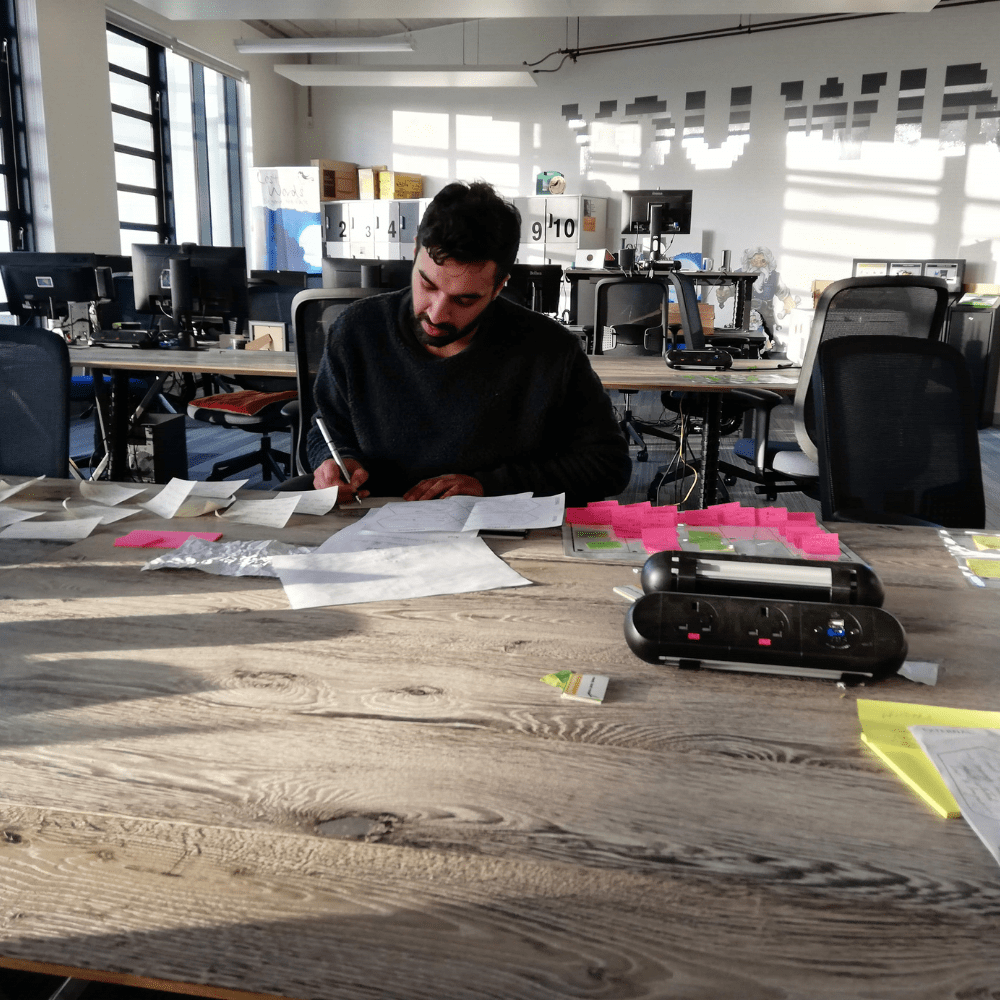MSc Data Science and its Applications student Burak Kapuağası gained industry experience in marketing analytics by joining the Essex Startups Innovation Factory project.
How it started...
I completed a BSc in Business Management at Bilkent University in Ankara, Turkey. In the last year of my Bachelor’s degree, I undertook a business analytics course which sparked my interest in data application. I decided to apply for a Master’s degree in data science to become a business analyst consultant. I followed the examples of successful professionals in this field and understood that the UK offers a high level of education and a great start to pursuing a career abroad.
The academic supervisor from my Bachelor’s degree proposed a few universities in the UK that I might be interested in. I chose Essex because the MSc Data Science and its Applications course structure was skill oriented and had proficient coding systems. The more advanced modules have allowed me to enhance the business analytics knowledge I had gained during my bachelor’s degree. I enjoy spending time in the green areas of the Colchester campus, including the lakes, park, and the library, which is currently my favourite part of the campus infrastructure.
During my studies, I was keen to build a portfolio that would help me pursue a business analyst consultant career. I was engaged with Careers Services, where I learnt about the Frontrunners programme. I hadn’t heard about Essex Startups but was eager to get work experience, so I applied for the Innovation Factory Project Assistant position.
Innovation Factory project
The Innovation Factory started with a two-day induction bootcamp, where we learned about university-based start-up businesses, their structures, missions, and the problem we would be addressing during the programme. We were also introduced to start-up founders and our mentors - my team worked with Abi Bright (Founder of Polishpad), and our mentor was Magdalena Mahdy (Entrepreneur-in-Residence). During the eight weeks, we worked in teams on developing and executing Polishpad’s marketing strategy. The problem we were solving was about utilising marketing data to increase brand awareness of Polishpad.
My teammates were focused on social media content planning and creation while I concentrated on data. I analysed data from the website and social media channels to visualise it in the form of user-friendly dashboards for my teammates. I presented data reports and recommendations to my team so then they could create social media content based on my suggestions. We had regular team meetings to exchange ideas and seek feedback from our mentor. My team was very collaborative and supportive, and I am glad I could help my teammates by providing the required data outputs.
During project, I gained first-hand experience in analysing digital marketing data. It was completely different to the content I learnt during the lectures. The data I worked with in my classes was clean and predictable and mostly covered data from industries like Insurance or Life Sciences. While this process required more self-learning. I had to manage my workflow and was introduced to many new analytics tools, including Google Analytics and Meta Analytics. Abi shared access to these platforms with me, and I had my self-study time to work it out and demonstrate the final data output. Sometimes I had to study a lot independently, spending time figuring out new platforms and systems. However, my studies provided me with a solid foundation to learn new programmes and overcome challenges.
The Innovation Factory gave me an insight to the challenges of running an online business and how managing a start-up workflow can be tricky. I could see how Abi had to differentiate her product and platform and how challenging it was. As a team, we had to be always creative, develop new ideas and improve our work. Presenting our findings and solution at the Innovation Factory Finale was very rewarding, as I had the opportunity to enhance my public speaking skills and gain more confidence in data analysis.
What's next...
The biggest benefit of the Innovation Factory was to understand the gap between academic and industry aspects of data analysis. I am now writing my dissertation on Business Analytics, using concepts I learned while supporting Abi and her business. After graduation, I would like to work as a business consultant, so I am glad I gained relevant industry experience during my studies.
This experience has also inspired me to start my own business. I have an idea of applying language models to mental health issues, but it’s still in process. I am looking forward to working with Essex Startups when I decide to take this idea further.
Words of wisdom...
Go for it! More people from the Mathematical Sciences department should apply for similar internship opportunities. Working on a real business problem provides excellent opportunities to manage real data, work with a team and gain relevant industry experience, which future employers will value. You shouldn’t be afraid of a lack of interpersonal skills or experience. You will learn along the way and notice the difference between industry and academic concepts.
Find out more
If you have a potential business idea, or are interested in developing your business skills, find out more about the training, events and support Essex Startups offers to current students and recent graduates.
Frontrunners is the University’s own, part-time, internship scheme, designed specifically for students with very little or no work experience. Frontrunners offers a range of paid opportunities to develop your skills, knowledge, and experience in a supportive, familiar environment.






















